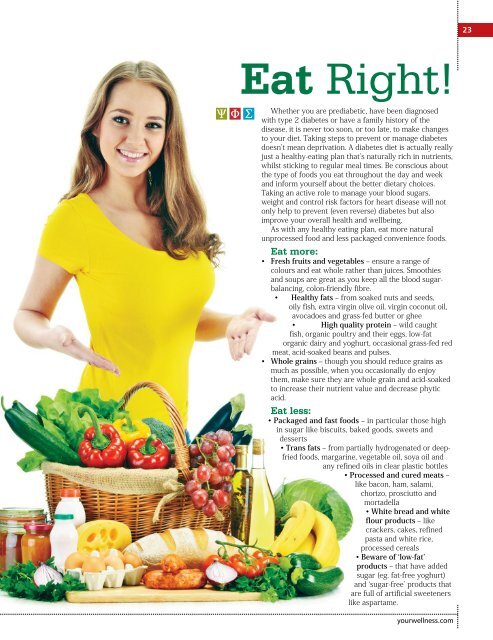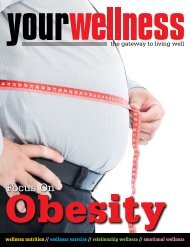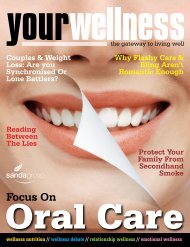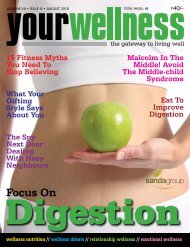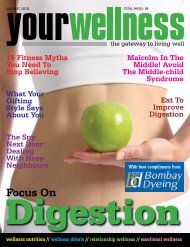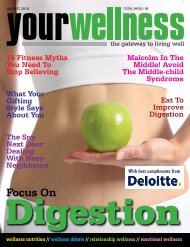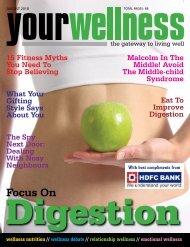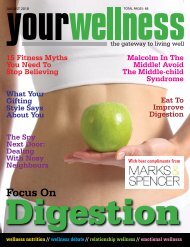Sanda_Issue_November-18
You also want an ePaper? Increase the reach of your titles
YUMPU automatically turns print PDFs into web optimized ePapers that Google loves.
23<br />
Eat Right!<br />
Whether you are prediabetic, have been diagnosed<br />
with type 2 diabetes or have a family history of the<br />
disease, it is never too soon, or too late, to make changes<br />
to your diet. Taking steps to prevent or manage diabetes<br />
doesn’t mean deprivation. A diabetes diet is actually really<br />
just a healthy-eating plan that’s naturally rich in nutrients,<br />
whilst sticking to regular meal times. Be conscious about<br />
the type of foods you eat throughout the day and week<br />
and inform yourself about the better dietary choices.<br />
Taking an active role to manage your blood sugars,<br />
weight and control risk factors for heart disease will not<br />
only help to prevent (even reverse) diabetes but also<br />
improve your overall health and wellbeing.<br />
As with any healthy eating plan, eat more natural<br />
unprocessed food and less packaged convenience foods.<br />
Eat more:<br />
• Fresh fruits and vegetables – ensure a range of<br />
colours and eat whole rather than juices. Smoothies<br />
and soups are great as you keep all the blood sugarbalancing,<br />
colon-friendly fibre.<br />
• Healthy fats – from soaked nuts and seeds,<br />
oily fish, extra virgin olive oil, virgin coconut oil,<br />
avocadoes and grass-fed butter or ghee<br />
• High quality protein – wild caught<br />
fish, organic poultry and their eggs, low-fat<br />
organic dairy and yoghurt, occasional grass-fed red<br />
meat, acid-soaked beans and pulses.<br />
• Whole grains – though you should reduce grains as<br />
much as possible, when you occasionally do enjoy<br />
them, make sure they are whole grain and acid-soaked<br />
to increase their nutrient value and decrease phytic<br />
acid.<br />
Eat less:<br />
• Packaged and fast foods – in particular those high<br />
in sugar like biscuits, baked goods, sweets and<br />
desserts<br />
• Trans fats – from partially hydrogenated or deepfried<br />
foods, margarine, vegetable oil, soya oil and<br />
any refined oils in clear plastic bottles<br />
• Processed and cured meats –<br />
like bacon, ham, salami,<br />
chorizo, prosciutto and<br />
mortadella<br />
• White bread and white<br />
flour products – like<br />
crackers, cakes, refined<br />
pasta and white rice,<br />
processed cereals<br />
• Beware of ‘low-fat’<br />
products – that have added<br />
sugar (eg. fat-free yoghurt)<br />
and ‘sugar-free’ products that<br />
are full of artificial sweeteners<br />
like aspartame.<br />
yourwellness.com


